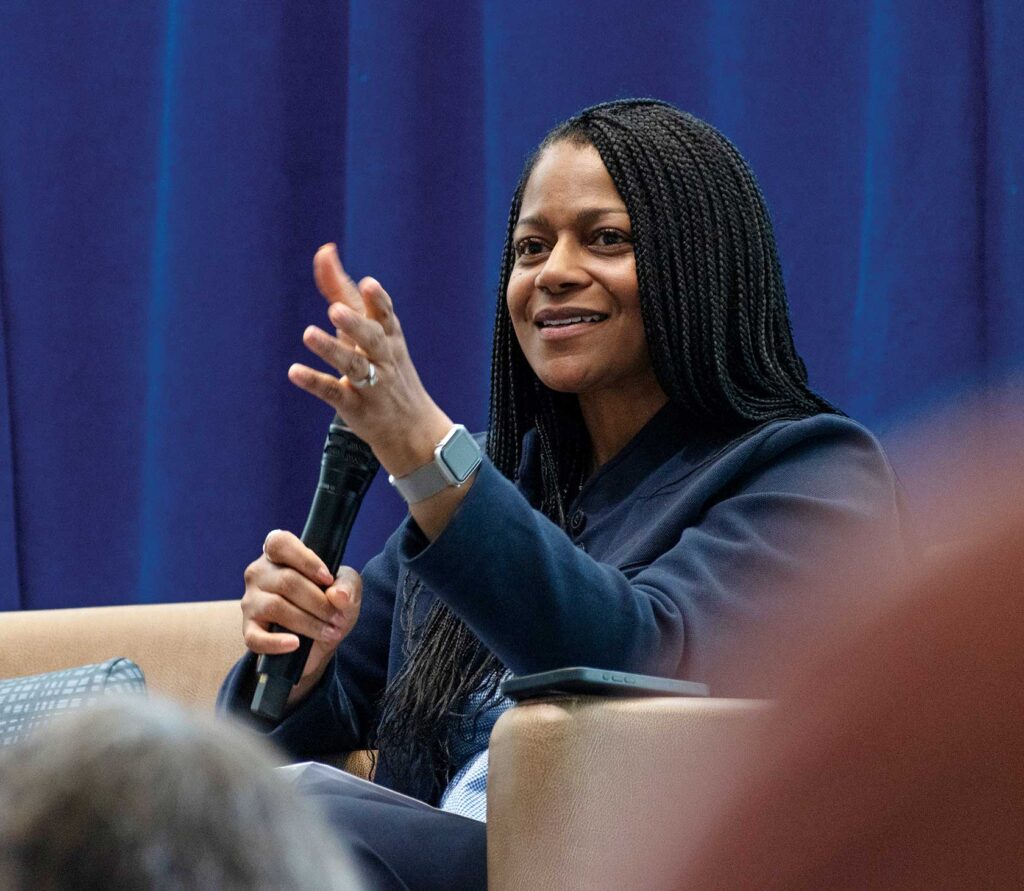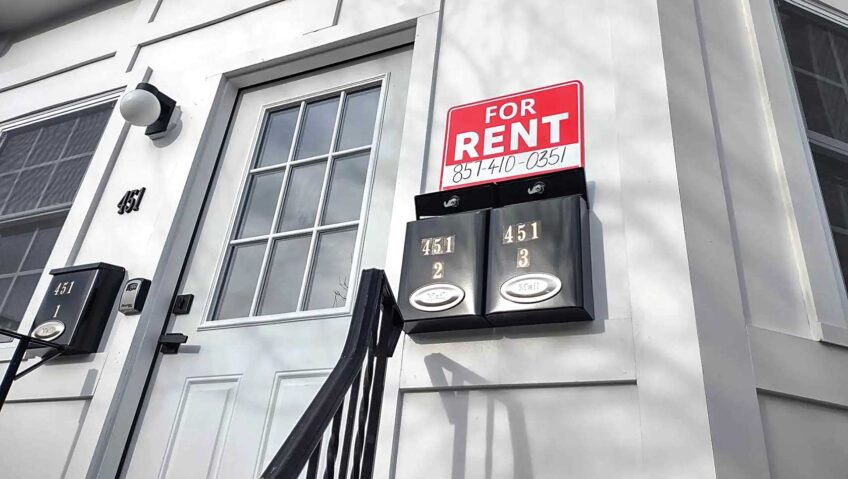
Opioid overdose deaths dropped sharply in 2024, according to a new analysis by the city.
According to the Boston Public Health Commission, opioid overdose deaths dropped by 38% in 2024 across the city compared to the year before, according to a new data released May 29.
Black and Latinx populations in the city, who have often been hit hardest by the opioid epidemic, saw larger decreases. Overall, Black residents experienced a 58% decrease and Latinx residents saw a 48% decrease.
Dr. Bisola Ojikutu, commissioner of public health for the city of Boston, called the decrease a “testament to work done in partnership with community-based organizations, community health centers, and residents.”
“These data reinforce our commitment to eliminating racial and ethnic disparities and to ensuring equitable access to services for people with substance use disorders,” she said in the statement. “While we are encouraged by this data, we still have work to do. One life lost to overdose is one life too many.”
The new statistics follow a trend the commission was tracking throughout last year. In October, the city agency reported that from January to April 2024, opioid overdose deaths were 33% lower than the same period the year before. And in January, the commission released another analysis that showed that trend continuing, with opioid overdose deaths from May to August 2024 down by 39%, compared to that period in 2023.

The contents of a harm reduction vending machine are shown at the Boston Public Health Commission’s Recovery Services office in the Boston Medical Center Finland Building. PHOTO: BOSTON PUBLIC HEALTH COMMISSION
Nationwide, the United States is also seeing a broad decrease in deaths related to opioid overdoses. In May, the Centers for Disease Control released provisional data that found an almost 27% decrease in drug overdose deaths across the country in 2024 compared to 2023.
The Boston Public Health Commission’s numbers are considered preliminary — all the death statistics for 2023 and 2024 must be checked by the state Department of Public Health, a process that, in an interview, Ojikutu called “complicated,” and which includes verifying things like the cause of death and whether it was intentional or unintentional.
The Boston Public Health Commission credited the decrease in deaths to a host of efforts in which it has engaged in recent years, including taking steps to support individuals struggling with substance use disorder to access treatment, to distribute fentanyl test strips and to increase access to naloxone, a drug that can be used to reverse the effects of an opioid overdose. Ojikutu said the commission distributed over 23,000 doses in 2024, focusing on neighborhoods that saw higher drug overdose deaths in years prior.
The extent to which those initiatives are directly responsible for the decrease is a little foggy; Ojikutu called the reasons for the decline “multifactorial.” She said the timing of the interventions, which the commission largely started in response to a 7% increase in opioid overdose deaths in 2022, lines up with seeing a decrease now.

The Boston Public Health Commission credited the decrease in deaths to a host of efforts in which it has engaged in recent years, including increased access to naloxone (Narcan), a drug that can be used to reverse the effects of an opioid overdose. PHOTO: UNSPLASH
But other factors, like a changing illegal drug supply, may also be at play. Ojiukutu said the Boston Public Health Commission is currently working with researchers at Brandeis University to get more information about that shifting supply.
A 2024 report from researchers at Brandeis found that communities across the state were seeing decreases in amounts of fentanyl in the illegal drug supply in Massachusetts. The synthetic drug is stronger than many other opioids and more likely to cause an overdose.
And while the extent to which the Boston Public Health Commission’s initiatives impacted the decrease isn’t entirely clear, Ojikutu said she believes it had some impact. The 2024 report from Brandeis found larger reductions in overdose deaths in communities with harm reduction programs.
“It’s difficult to attribute that to any one intervention, or any one combination of interventions, however, we do believe that what we’ve done has been impactful, and we will continue to move forward with the work that we’re doing,” Ojikutu said.
Public health leaders in the community, too, have said they’ve seen success with efforts from the commission.
Dr. Cyril Ubiem, senior vice president of programs and services at Harvard Street Neighborhood Health Center, said the health center has seen extensive engagement with harm reduction programming organized by the Boston Public Health Commission.

Dr. Cyril Ubiem, senior vice president of programs and services at Harvard Street Neighborhood Health Center, says the health center has seen extensive engagement with harm reduction programming organized by the Boston Public Health Commission.
The health center has worked with the city on expanding access to treatment services and resources, including installing a kiosk in the facility with free naloxone and test strips. Ubiem says that when they installed the kiosk, the amount of Narcan the health center was distributing to the community more than doubled.
“There’s a lot of overdose prevention in the community in Boston that’s having effects right now,” Ubiem said. Part of that, he attributed to how the Boston Public Health Commission works with communities. Ubiem said that the commission “engaged people seriously.”
“I can tell the amount of footwork that’s being done out there on the streets, and it’s taking effect,” he said.
Ubiem said he celebrated the impact the efforts have had, particularly in communities of color. According to the health center’s 2024 annual impact report, 88% of its patients were Black or African American and 49% reported Hispanic or Latinx ethnicity.
“That means more individuals staying alive, to take care of their families, to take care of themselves, to contribute to the society,” he said.
Given the success he has seen, Ubiem said he’d like to see the work continue at the commission, and he’d like to see Massachusetts take up the work to expand it statewide.
Other public health leaders also called for continued investment across all levels of government. Julie Burns, president and CEO of RIZE Massachusetts, a nonprofit foundation working to end the opioid epidemic, said the organization was encouraged by the new statistics, but would like to see ongoing support, especially as continued cost-cutting at the federal level could impact work to address opioid overdoses. She called that effort a “long-term vision” that requires time, resources and collaboration.
“Given the significant progress and positive results in addressing the overdose crisis, now is not the time to reduce funding for the tools and treatment that can help all those who are still at risk of losing their lives,” Burns said.
Ojikutu said that despite the decrease in overdose deaths, “we don’t believe this is a time to celebrate.”
The Boston Public Health Commission, she said, plans to continue the same efforts with a goal of continuing to lower the number of overdose deaths in the city. The commission will work on expanding its data around drug use, including doing outreach to track use patterns among the city’s unsheltered residents who struggle with substance abuse.
“Our goal is to lower [the number of deaths] and to continue to see this trend as we move forward, and we will continue to invest in these same activities,” Ojikutu said.






